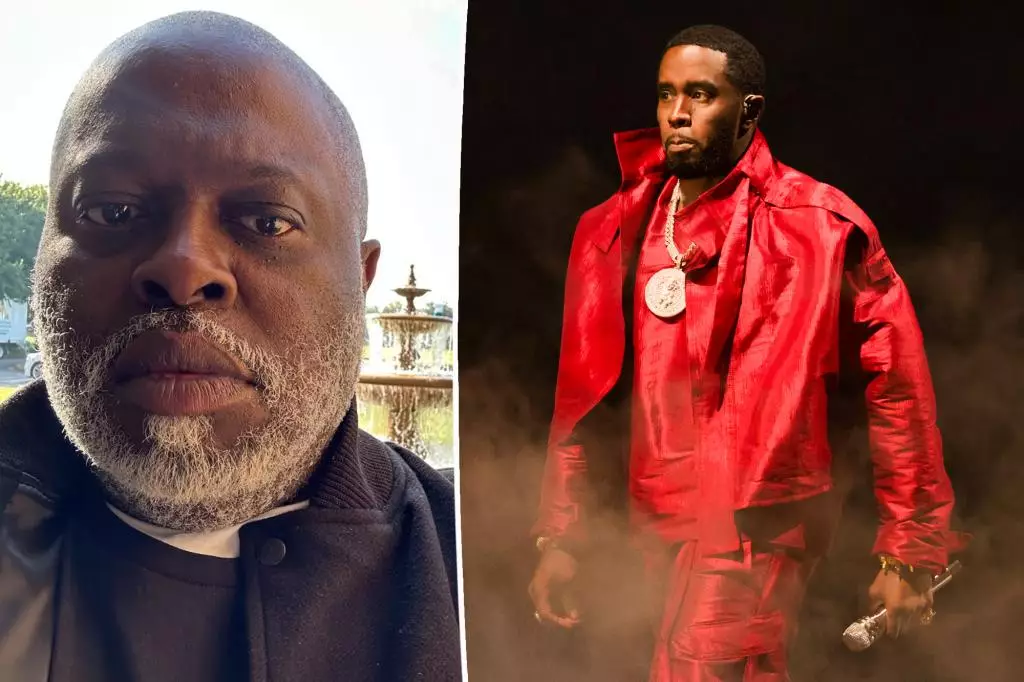In a striking turn of events, Sean “Diddy” Combs has initiated a highly publicized defamation lawsuit against Courtney Burgess, attorney Ariel Mitchell, and Nexstar Media Inc., which operates the media outlet NewsNation. The lawsuit, amounting to $50 million, centers on allegations that Burgess fabricated claims about Combs, which were endorsed and broadcasted by NewsNation. This legal confrontation not only showcases the complexities of celebrity culture and media ethics but also raises important questions about the implications of false accusations in the public domain.
The crux of the complaint rests on the assertion that Burgess falsely claimed to possess incriminating video evidence of Combs involved in sexual misconduct. As part of the lawsuit filed in the Southern District of New York, Combs asserts that Burgess’s statements, particularly during a segment on NewsNation, were unfounded. During this appearance, Burgess claimed to hold nearly a dozen flash drives containing explicit videos involving various celebrities, including minors who were allegedly impaired at the time of recording. These statements, deemed by Combs as sheer fabrications, were reportedly parroted by Mitchell and disseminated widely by NewsNation, culminating in what Combs describes as a “reputational and economic injury.”
Combs’s legal team has pointed out the gravity of the media’s role in amplifying these allegations. The lawsuit emphasizes that Burgess has repeatedly made defamatory claims, which were recklessly propagated by major news outlets, thus reaching a vast audience both nationally and internationally. These actions raise significant ethical concerns regarding journalistic responsibility and the need for verification before broadcasting potentially damaging statements.
The lawsuit also implicates Mitchell, suggesting that she either knew the claims were false or acted with a reckless disregard for the truth. This aspect of the complaint is critical as it questions the integrity of legal representation in cases involving serious accusations. Mitchell’s assertions about the existence of the videos further complicate the narrative, as she publicly declared confidence in the validity of her client’s claims. The lawsuit argues that such assertions, lacking any substantive evidence, contribute to a narrative of malice rather than mere negligence.
Moreover, the complaint’s verbiage underscores the potential fallout from these accusations—not only for Combs personally but also for the broader implications on his career and reputation. It raises the central issue of how unsubstantiated claims can irreparably damage an individual’s standing in the public eye, thus influencing jury perceptions and compromising the defendant’s right to a fair trial.
Diddy is already embroiled in a plethora of legal challenges, including serious criminal charges such as racketeering conspiracy and sex trafficking, which he has vehemently denied. His arrest and indictment in September 2024 raised further questions about his conduct, with allegations pointing towards a disturbing pattern of abuse and coercion over several years. The indictment details lurid accusations, alleging that Combs orchestrated “freak-offs”—intense drug-fueled sex gatherings that led to physical and emotional violence against participants. As a result, these concurrent legal issues only amplify the stakes of the defamation lawsuit.
With his trial date set for May 2025, the looming specter of potential life sentences has intensified scrutiny on Combs, as he battles not only the allegations but also the media narrative that surrounds him. The intertwining of serious criminal charges with the current defamation suit complicates Combs’s public persona, blurring the lines between victimhood and culpability in the eyes of the public.
Combs’s lawsuit can be viewed as a potent reminder of the critical need for accountability in journalism and the legal profession. As technology and social media continue to shape the dissemination of information, the consequences of spreading misinformation can have devastating effects. The case emphasizes the importance of rigorous fact-checking and ethical standards in reporting, particularly when the content can significantly affect an individual’s life and career.
As Sean Combs navigates this turbulent chapter of his life, the outcomes of his defamation lawsuit could set important precedents regarding media responsibility and the handling of sensitive allegations. The legal proceedings ahead will not only determine the veracity of the claims against him but also spotlight the ethical obligations of those who share and amplify such narratives.
